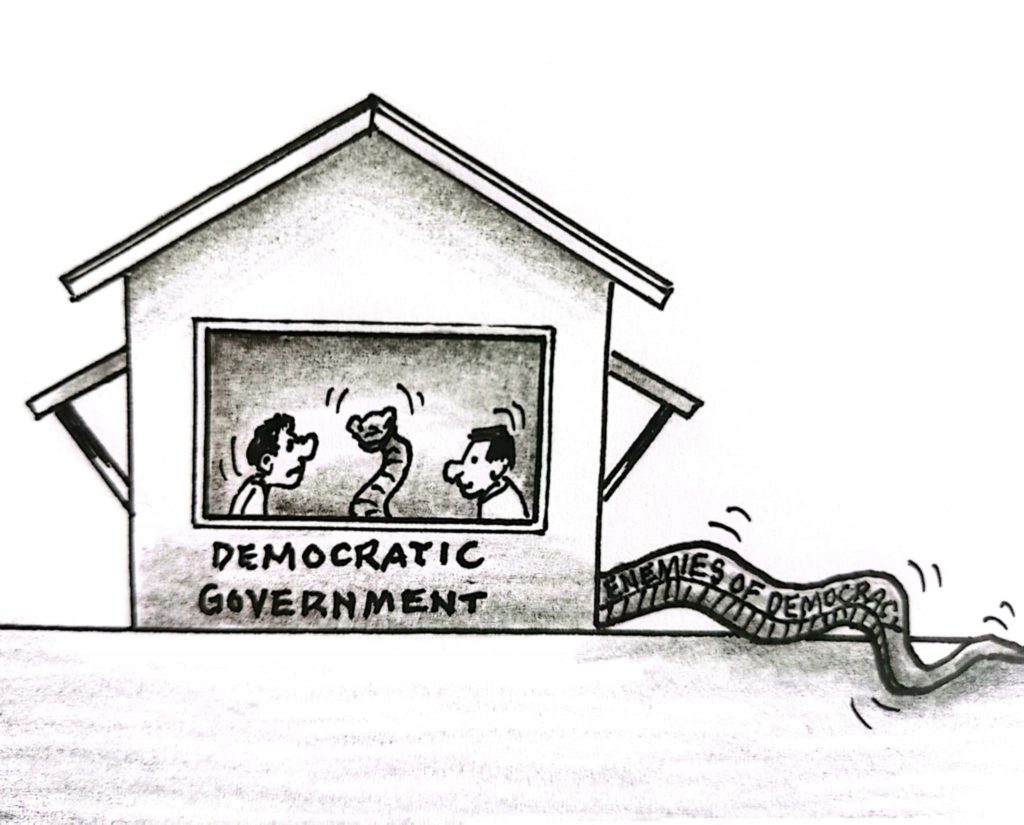Our country has been facing a perilous crossroads where the enemies of democracy have infiltrated the very institutions meant to safeguard it. These individuals, some openly clinging to ideologies hostile to pluralism, remain intent on reshaping the government into a one-party regime. It is alarming that, despite the dangers, they continue to gain positions of power through elections, threatening to erode the foundations of freedom and governance.
This infiltration is no accident; it is the result of a calculated strategy. These groups have mastered the art of political survival, cloaking their true intentions in populist rhetoric and promises that resonate with disillusioned voters. By presenting themselves as champions of the marginalized, they exploit the frustrations of citizens desperate for change. But the cost of their rise is democracy itself. A government dominated by a single party, as they envision, would leave no room for dissent, debate, or diversity. History offers numerous grim examples of how such regimes crush opposition, silence critics, and consolidate power under the guise of serving the people.
The situation is made worse by the complacency of voters who fail to recognize the long-term consequences of their choices. Many see elections as popularity contests or opportunities to exact revenge on political elites, overlooking the importance of ideology and principles. This shortsightedness empowers those who seek to dismantle democracy from within. Each vote cast for these individuals is a step closer to their ultimate goal—a government where elections become mere formalities and alternative voices are systematically silenced.
Compounding the issue is the failure of democratic institutions to act decisively against these threats. Agencies tasked with upholding democratic principles often lack the will or capacity to address the growing menace. Weak enforcement of laws, leniency toward subversive activities, and an absence of accountability allow these individuals to operate with impunity. Even Congress, once a bastion of healthy political discourse, is increasingly influenced by figures whose agendas are anything but democratic, now in close alliances with prominent lawmakers.
The nation must wake up to the danger before it is too late. Education campaigns should be intensified to inform voters of the implications of their electoral choices. Institutions must be strengthened to enforce democratic safeguards and prevent the consolidation of power by those who threaten the system. Above all, citizens must prioritize vigilance and accountability, ensuring that democracy is not just a word but a living, breathing principle upheld by every Filipino.




